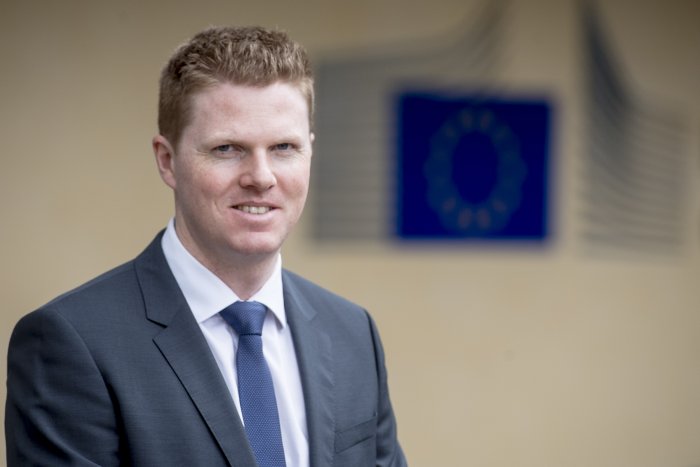The latest appearance of Christian Wigand, spokesperson of the European Commission, in relation to Commissioner Věra Jourová’s controversial visit to the Constitutional Court of the Republic of Slovenia shows that he is either uninformed, delusional or ill-prepared. That is why Slovenian Member of the European Parliament, Dr Milan Zver, has asked him to clarify once again his thoughts from the press conference held on the 3rd of April.
“At the press conference, you said that ‘only the parts of the report that fell within the scope of the MEP’s request were published’. I would like to address your statement and clarify that what has been handed over deviates significantly from the actual circumstances regarding my request for the disclosure of all internal documents related to Commissioner Jourová’s visit to Slovenia and the subsequent declassification of the report,” MEP Dr Zver wrote.
The MEP specifically requested a series of documents from the Commissioner, namely the minutes of the meeting between Commissioner Věra Jourová and the President of the Constitutional Court, Matej Accetto; all communications between the European Commission’s cabinets, and all of the Commissioner’s communications within her own cabinet. “This denies your claim that I requested only selected parts of the report,” wrote MEP Dr Zver, who added that the issue of censorship of the report, which was previously the subject of a dispute, had long since been resolved, as the classification had been removed from the document more than half a year ago.
“The insistence on this version of events, both in your recent statements and those of last year, is confusing and shows a lack of awareness of the process you have publicly discussed,” wrote the MEP.
The MEP then informed the spokesperson that he has recently received more than 100 pages of documents for the Commissioner’s two-day visit, and explained that the only undisclosed information relates to the third point of the purpose of the Commissioner’s meeting with the President of the Constitutional Court. “The Commission justifies the non-disclosure of this information on the grounds that it was not discussed, and that disclosure could hinder the European Commission’s decision-making process and encourage self-censorship among officials,” writes MEP Dr Zver.
“In view of the apparent discrepancy between the actual scope of my request, the complete declassification of the report, and your statements at the recent press conference, I kindly ask for clarification of these remarks. Maintaining factual accuracy is crucial in protecting the integrity of public discourse,” concluded the MEP.
Did the Commissioner exceed her powers?
It is important to note that the EU Commissioner Věra Jourová visited Slovenia at a critical time, when the Constitutional Court was ruling on a controversial amendment to the Radio-Television Slovenia Act. Here she held talks with representatives of the authorities, journalists and NGOs, as well as the President of the Constitutional Court, Dr Matej Accetto. The circumstances of her visit suggest that her intention was to influence the Constitutional Court judges who, following her visit, finally allowed the implementation of all the provisions of the controversial law, which allowed for the “depoliticisation” or usurpation of a public institution by the political left.
Ž. K.


